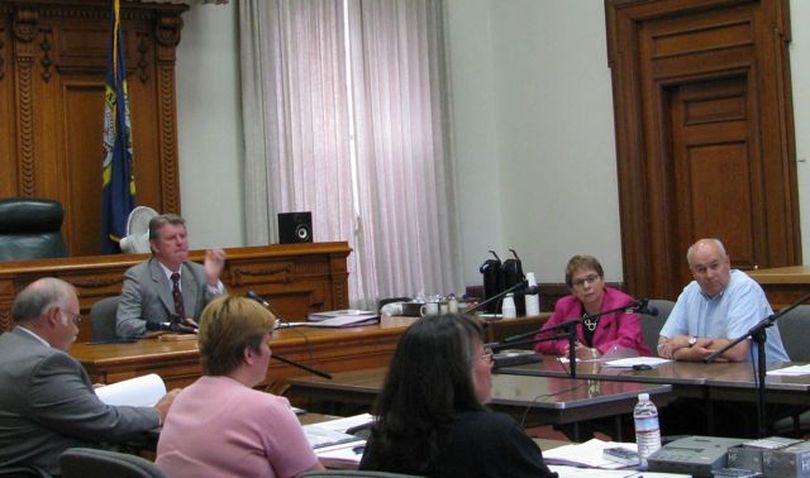Gov, pro-tem grudgingly agree to payment

Gov. Butch Otter and Idaho state Senate President Pro-Tem Bob Geddes, R-Soda Springs, led the opposition in a rare meeting of the Constitutional Defense Council this morning to paying court-ordered attorney fees in a case that the state mostly lost, but partly won; the case went all the way to the U.S. Supreme Court, which upheld a small piece of a state law restricting payroll deductions for union political activities. The council, which also includes the state's attorney general and the speaker of the Idaho House, ultimately voted unanimously to make the $75,000 payment, which had been negotiated down from $131,000; but also to seek more funding from the Legislature next year to bring the much-depleted fund, now with less than $300,000 after this payment, back up to $1 million.
Geddes said he was concerned that the payment was "outside the scope" of what the council originally was set up for - to oversee a million-dollar fund, created in 1995, to defend the state's sovereignty on constitutional grounds. "It's for fighting the federal government, defending the 10th Amendment," Geddes said. "There have been other issues. We've expended money on (court cases involving) everything from nuclear waste to bear baiting. We can't allow allow the fund to be the new water pollution control account." That's a state account that traditionally has been tapped for many purposes.
Said House Speaker Lawerence Denney, "I, too, am concerned about depleting the constitutional defense fund." Said Otter, "As I recall, it was for defense of the constitution, and here we're talking about a statute." The Voluntary Contributions Act, which the Legislature passed in 2003, banned union payroll deductions for political activity, at any employer. It was challenged by the Pocatello Education Association and others, and most of the law was overturned in federal district court on constitutional grounds, including violation of the 1st and 14th Amendments to the U.S. Constitution. The law was ruled invalid as it related to private employers, but upheld for state employees. Federal courts said the state couldn't impose the limit on local government employees as well, but the U.S. Supreme Court overturned that ruling, allowing the restriction to apply to local governments.
Justice John Roberts wrote the majority opinion, which was issued on Feb. 24th. In a dissent, Justice John Paul Stevens wrote, "Because it is clear to me that the restriction was intended to make it more difficult for unions to finance political speech, I would hold it unconstitutional in all its applications." Justices Scalia, Kennedy, Thomas and Alito joined in the majority opinion. Two other justices concurred in part.
